Admission Process for Bachelor of Science (B.Sc.) Plant Biology and Plant Biotechnology Course
A Bachelor of Science (B.Sc.) in Plant Biology and Plant Biotechnology is an undergraduate program designed to provide students with a deep understanding of plant life, including their biology, genetics, and biotechnological applications. This program equips students with the knowledge and skills required to address challenges in agriculture, environmental conservation, and biotechnology. If you aspire to pursue a career in plant biology and biotechnology, understanding the admission process is essential. In this comprehensive guide, we will provide a detailed overview of the typical admission process for a B.Sc. in Plant Biology and Plant Biotechnology program, covering each step and offering insights and tips to help you successfully secure admission.
1. Program Research and Selection: Before embarking on the admission process, it is crucial to research and select institutions that offer a B.Sc. in Plant Biology and Plant Biotechnology. Look for colleges or universities with reputable biology and biotechnology programs. Consider factors such as program accreditation, faculty expertise, research opportunities, laboratory facilities, and the specific areas of plant biology and biotechnology covered in the curriculum, such as molecular genetics, plant physiology, and genetic engineering.
2. Eligibility Criteria: The eligibility criteria for admission to a B.Sc. in Plant Biology and Plant Biotechnology program may vary slightly from one institution to another. However, there are common eligibility requirements you can expect.
i) Educational Qualifications: Typically, candidates should have completed their higher secondary education or equivalent. A high school diploma or its equivalent with a satisfactory academic record in science subjects is generally required.
ii) Science and Mathematics Prerequisites: As plant biology and biotechnology are science-intensive fields, candidates may need to have completed high school coursework in biology, chemistry, and mathematics. Some programs may also require physics.
iii) Entrance Examinations (if required): Some institutions may require candidates to take standardized tests or entrance examinations. These tests may assess your knowledge of science subjects and aptitude for the program.
3. Document Preparation: Preparing a strong application package is crucial for a successful admission. Here are the essential documents you'll need to prepare.
i) High School Transcripts: Gather your high school transcripts, which should reflect your academic performance and relevant coursework in science subjects.
ii) Application Form: Complete the application form provided by the institution offering the program. Most institutions offer online application portals, making it convenient to apply from anywhere.
iii) Entrance Examination Scores (if required): If applicable, prepare for and take any required entrance examinations, and ensure that your scores are submitted as part of your application.
iv) Personal Statement or Statement of Purpose (SOP): Write a well-crafted personal statement or SOP that outlines your motivations, career goals, and why you are interested in pursuing a B.Sc. in Plant Biology and Plant Biotechnology. Tailor your statement to each institution's specific program.
v) Letters of Recommendation: Some institutions may request letters of recommendation. These letters should ideally come from teachers, mentors, or professionals who can vouch for your academic abilities, passion for plant biology, and suitability for the program.
vi) Resume/Curriculum Vitae (CV): Create a resume or CV that highlights your academic achievements, relevant coursework, any biology-related experiences (e.g., internships, research projects), extracurricular activities, and any other qualifications that demonstrate your passion for plant biology and biotechnology.
4. Application Submission: Once you have gathered all the necessary documents and completed the application form, submit your application to the institution of your choice. Double-check that you have provided accurate information and that your application is free of errors.
5. Application Fee: Some institutions may charge an application fee to process your application. The fee amount can vary, so be sure to inquire about this fee and explore any waiver options if applicable.
6. Entrance Examination (if required): If you are required to take an entrance examination, ensure that you are well-prepared. This may involve studying science subjects, biology concepts, and aptitude tests to familiarize yourself with the format.
7. Interview (if required): In some cases, institutions may require applicants to participate in interviews as part of the admission process. These interviews may assess your communication skills, passion for plant biology and biotechnology, and suitability for the program. Prepare by researching common interview questions and practising your responses.
8. Admission Review: After receiving your application, the admissions committee, composed of faculty members and experts in plant biology and biotechnology, will review your materials. They will consider various factors, including your academic qualifications, entrance exam scores (if applicable), personal statement, letters of recommendation, relevant experiences, and any interview outcomes.
9. Admission Decision: Once the admissions committee has reviewed the applications, applicants will receive notifications of their admission status. This communication is typically sent via email or through the university's application portal. If accepted, you will receive formal admission letters outlining the next steps, including enrollment procedures and deadlines.
10. Financial Aid and Scholarships: Prospective students should explore financial aid and scholarship opportunities to support their education in plant biology and biotechnology. Many universities offer scholarships, grants, or financial aid packages based on academic merit, research potential, financial need, or other criteria. Research and apply for these opportunities alongside the admission process to maximize your chances of receiving financial assistance.
11. Enrollment and Orientation: After being admitted, students must follow the university's enrollment and registration procedures. This includes submitting any required financial documents, confirming your intent to enrol, and selecting courses for your first semester. Participate in orientation sessions to familiarize yourself with the institution, its resources, laboratory facilities, and the expectations of the B.Sc. in Plant Biology and Plant Biotechnology program. This is an excellent opportunity to connect with faculty, staff, and fellow students who share your passion for plant science.
12. Commencement of Classes and Research Projects: The admission process culminates with the commencement of classes and research projects. Students begin their coursework, engage in laboratory work, and hands-on research projects, and embark on their academic journey towards earning a B.Sc. in Plant Biology and Plant Biotechnology.
 3 Years
3 Years
 Under Graduate
Under Graduate
 Science
Science
 Full Time
Full Time








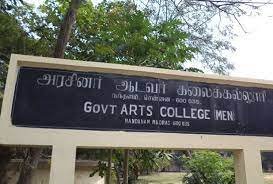

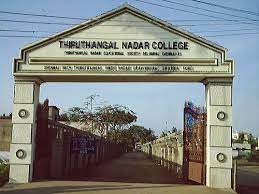

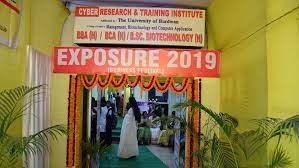
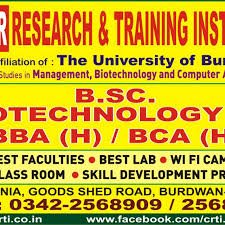


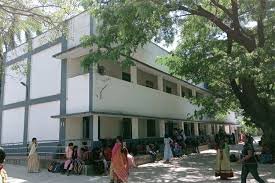
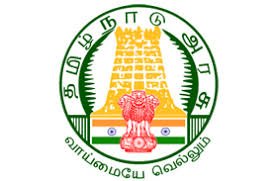

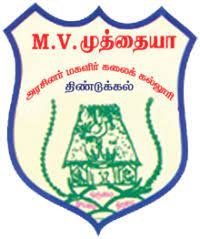

 back
back